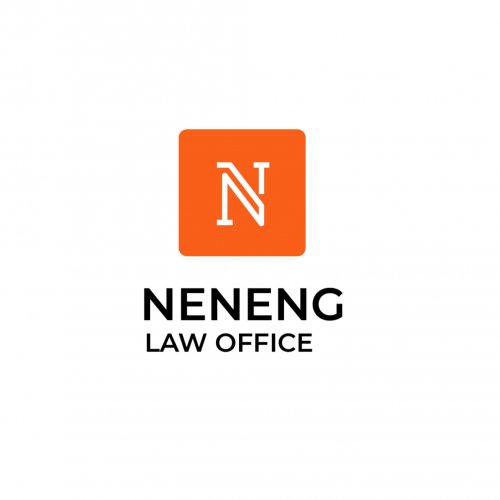Best Real Estate Lawyers in Cameroon
Share your needs with us, get contacted by law firms.
Free. Takes 2 min.
Free Guide to Hiring a Real Estate Lawyer
Or refine your search by selecting a city:
List of the best lawyers in Cameroon
Legal guides written by CHI & Partners Law Firm:
- Ship Registration in Cameroon
About Real Estate Law in Cameroon
Real Estate Law in Cameroon is governed by both French civil law, customary law, and national laws enacted post-independence. It's an integral legal sector that helps regulate the sale, purchase, and ownership of land and properties. Real estate law in Cameroon also covers tenant-landlord agreements, development and construction, zoning laws, and matters related to property taxes and fees. It is essential to understand that Cameroon's real estate laws can be quite complex, due to the country's bilingual and bijural legal system and the simultaneous operation of modern and traditional land control systems.
Why You May Need a Lawyer
Understanding local real estate laws and navigating through the complex property ownership and buying process can be challenging without legal help. If you are buying, selling, or leasing a property, it's advisable to hire a lawyer. Similarly, if you're dealing with land disputes, need assistance with property contracts, or if you are a foreigner wishing to invest in Cameroonian properties, a lawyer's help will be invaluable. More so, landlords often require legal guidance on tenant eviction laws, while tenants may need legal assistance on rent matters and rights protection.
Local Laws Overview
Real estate law falls under Cameroon’s Civil Code, which defines the rules for buying and selling properties. Land ownership can be classified as customary, freehold, or leasehold. Customary rights vary between communities and usually require local legal guidance. Freehold ownership gives the holders full rights over the land, while leasehold means the government has leased the property to you for a specific period (usually 99 years). Additionally, real estate laws also cover development restrictions, zoning laws, property taxes, environmental protection, and urban planning rules.
Frequently Asked Questions
1. What are the types of property ownership in Cameroon?
Property ownership in Cameroon can be classified as freehold, leasehold, or customary ownership.
2. How can a foreigner acquire property in Cameroon?
Foreigners can acquire properties in Cameroon but they require a special authorization for freehold ownership. They usually acquire leasehold properties after meeting all the legal requirements.
3. Do I need a lawyer to buy or sell a property?
Yes, due to the complexity of real estate transactions in Cameroon, it's advisable to engage the services of a lawyer whenever you're buying or selling a property.
4. How are property disputes resolved?
Property disputes are resolved in court and sometimes through traditional methods depending on whether the property in question is customary or freehold.
5. What is the role of a notary in property transactions?
The notary plays an essential role in verifying transactions, providing legal advice, and ensuring the legalities of property transactions are duly respected.
6. Can I rent out my property in Cameroon?
Yes, you can. But it's recommended to have a formal lease agreement, properly signed and ideally drawn by a real estate lawyer to avoid disputes and protect your rights.
7. What are the taxes involved in property transactions?
Property transactions in Cameroon attract various taxes including property tax, rental income tax, capital gains tax, and others. Specific rates depend on the nature and location of the property.
8. What environmental or zoning laws apply to property development?
There are strict laws and regulations on land use, zoning regulations, and environmental conservation which property developers have to abide by.
9. What happens if I fail to pay property taxes?
Failing to pay property taxes in due time may result in penalties or at worst, a lien against your property by the government.
10. How can I confirm the authenticity of a property or land title?
You can verify the authenticity of a property or a land title at the local land registry or with the help of a lawyer or notary.
Additional Resources
In-depth information about real estate law can be found through legal professionals, real estate agencies, or the Ministry of State Property and Land Tenure. Also, the Cameroon Civil Code and relevant local government municipality websites provide comprehensive information.
Next Steps
If you need legal assistance for any real estate matters, the first step is to contact a reputable real estate lawyer in Cameroon. They will guide you through the legal process, ensure your interests are protected, and help you navigate the complexities of property law in Cameroon. Always ensure you engage the services of a qualified professional for any legal matters you may encounter.
Lawzana helps you find the best lawyers and law firms in Cameroon through a curated and pre-screened list of qualified legal professionals. Our platform offers rankings and detailed profiles of attorneys and law firms, allowing you to compare based on practice areas, including Real Estate, experience, and client feedback.
Each profile includes a description of the firm's areas of practice, client reviews, team members and partners, year of establishment, spoken languages, office locations, contact information, social media presence, and any published articles or resources. Most firms on our platform speak English and are experienced in both local and international legal matters.
Get a quote from top-rated law firms in Cameroon — quickly, securely, and without unnecessary hassle.
Disclaimer:
The information provided on this page is for general informational purposes only and does not constitute legal advice. While we strive to ensure the accuracy and relevance of the content, legal information may change over time, and interpretations of the law can vary. You should always consult with a qualified legal professional for advice specific to your situation.
We disclaim all liability for actions taken or not taken based on the content of this page. If you believe any information is incorrect or outdated, please contact us, and we will review and update it where appropriate.
Browse real estate law firms by service in Cameroon
Cameroon Attorneys in related practice areas.
Browse real estate law firms by city in Cameroon
Refine your search by selecting a city.













